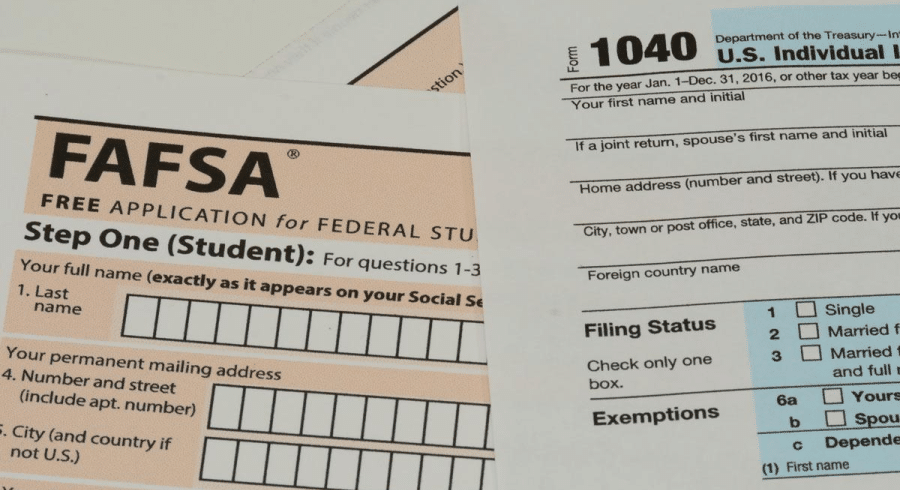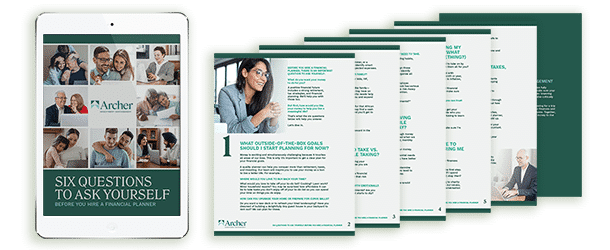Should I Push To Pay Off My Mortgage Before Retirement?
If you are like most Americans, your mortgage payment is probably your highest fixed expense. A mortgage is often seen as “good debt” since you need somewhere to live and you’re going to have to pay for it. But what about when you retire and you are living off of your savings? Will your mortgage payment overwhelm your budget? Should you pay it off before you retire or carry it with you? As with most things in life, the answer is not cut-and-dried. Answer these seven questions to decide what is best for you:
1. HOW TIGHT WILL YOUR RETIREMENT BUDGET BE?
Table of Contents
Have you determined your investment withdrawal rate and what your monthly income will be once you leave your working years behind? If your budget will be tight or your income will be significantly lower than what it is now, you might want to work longer to eradicate your mortgage payment. This will increase your cash flow in retirement, possibly freeing up some funds so that you can travel or pursue other passions.
2. WHAT IS YOUR INTEREST RATE?
Over the lifetime of a mortgage, you pay tens of thousands of dollars in interest. If you pay it off early, you will a lot of interest charges. Even though you would lose the tax benefits mortgage interest offers, you would still have more at the end of the day.
But, if your choice is between paying off your mortgage and investing more to build up your retirement wealth, you need to do the math. Compare your interest rate with expected market returns based on historical data. If you locked in your mortgage when interest rates took a nosedive and only pay 3.5%, then you might want to pour your extra cash into your savings if you believe you could get a return of 6%. The opposite is also true. If your interest rate is higher than what you think the market could give you, pay off your mortgage first.
3. DO YOU HAVE ADDITIONAL DEBT?
Is your mortgage your only debt or are you paying off student loans or credit cards too? Make sure you use any excess cash to pay off higher-interest debt first.
4. ARE YOU MAXING OUT YOUR RETIREMENT CONTRIBUTIONS?
The benefits of retirement savings accounts are touted everywhere we turn. Roth IRAs offer tax savings in retirement, Traditional IRAs and 401(k)s let you save on taxes now, and many employer-sponsored plans give you a match, essentially building up your nest egg with free money. If you aren’t maximizing your savings to the limits these accounts allow, you should do that first. This will bulk up your retirement savings and give you more financial flexibility and freedom in retirement.
5. HOW WILL YOU PAY OFF YOUR MORTGAGE?
Getting rid of this budget line item is a noble goal to have, but where will you get the money to accomplish this? Are you thinking about withdrawing from your retirement accounts to make this goal a reality?
First, don’t pay off your mortgage at the expense of your standard of living in retirement. If you are worried about your retirement income already, don’t increase that worry by decreasing the balance in your accounts. Second, maybe use funds from a Roth IRA before taking from a taxable account, that way you won’t be adding to your annual income tax, potentially pushing you into a higher tax bracket. Depending on your age, you will not only face taxes but also penalties if you make a withdrawal from an IRA or 401(k). You will also lose the future growth on the balances in your accounts.
But if you are determined to pay off your mortgage before you enter your golden years, here are some other options that avoid raiding your precious retirement nest egg:
Make Extra Payments
To slowly but surely minimize the amount you owe on your home, put any extra cash towards additional principal payments. It might not be as satisfying as paying your mortgage off in one big chunk, but even small amounts can take years off of the back end of your mortgage and reduce the total amount of interest you pay.
Think About Biweekly Payments
Another option is to make biweekly payments of half your usual monthly payment. Because there are 52 weeks in the year, you’ll make the equivalent of 13 monthly payments by year-end. On a 30-year mortgage, making 13 monthly payments each year instead of 12 would reduce the term of your loan by about four years.
15 Years vs. 30 Years
One way to slowly decrease your mortgage before retirement is to refinance to a 15-year loan. Your monthly payments will most likely be higher than those for a 30-year mortgage, but the increase will be balanced out by a lower interest rate and you will save thousands of dollars in interest over the term of the loan. Make sure you speak with an unbiased professional before taking this step to ensure the difference in interest rates will be worth the refinancing fees.
6. ARE YOU PLANNING TO MOVE?
If you want to relocate to a sunnier place or maybe move to be closer to your grandchildren, don’t worry about paying off your mortgage before taking on a new one in a different location. You can take the equity from the sale of your home and combine it with your savings to put towards the new house if you decide to go that route.
7. HOW MUCH PEACE OF MIND WILL A MORTGAGE-FREE LIFE BRING?
Many people place a high value on being debt-free. They want to enter retirement with nothing holding them back financially. Retirees with the least amount of stress and the most financial freedom are those with the lowest fixed expenses. If you want to retire with a clean slate, paying off your mortgage might be the right decision for you.
After answering each question with your personal situation in mind, where do you stand? If you want help weighing your options and making the decision that will benefit you the most, click here to schedule a phone call.
About Richard
Richard Archer is a financial advisor and the President of Archer Investment Management with more than eighteen years of industry experience. Largely working with successful individuals and couples, he specializes in providing comprehensive investment guidance and personalized care and attention to each client. Along with holding a Bachelor of Science in Economics and a MBA, he is a CERTIFIED FINANCIAL PLANNER™ certificant and a Chartered Financial Analyst®. He combines his advanced industry education and knowledge with his genuine care for people to provide clients with an exceptional experience. To learn more about Richard, connect with him on LinkedIn or visit www.archerim.com.










